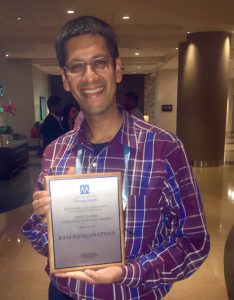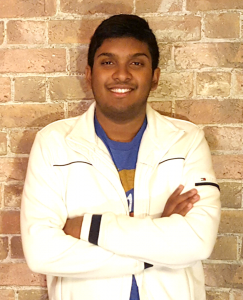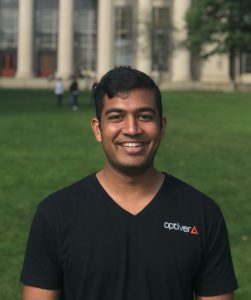 Laura Olivier
Laura Olivier
Featured: Living Abroad, Entrepreneurship, Marketing
Laura Olivier, BHP 2011, thought she wanted to be a lawyer, but life had other plans for her. After stints as an English teacher in Spain, working in store operations for Lululemon in Australia, and transitioning into a marketing role in Dubai, she is now running a lifestyle and fitness center (DEFINE) in Dubai. Life takes twists and turns when you’re on a mission to constantly learn new things, but Laura has learned a great deal about herself and her professional strengths along the way.
What kind of activities were you involved in while at UT?
At UT, I specialized in Marketing and BHP, and did mock trial competitively throughout. I thought I was going to be a lawyer the entire time! Because of this, I never did the typical activities that my BHP colleagues did, like case competitions.
I know you’ve traversed the globe quite a bit since graduation. Can you walk me through where you’ve been and what you’ve done?
My parents moved to Sydney in Junior year of college, so after graduation I decided to take advantage of that opportunity and move there for a gap year. Little did I know, that would change the course of the rest of my life, as I became addicted to living abroad. I had a job at Lululemon, where I learned about goal-setting. I realized that one of my goals in life was to learn another language, but that if I kept on my trajectory of becoming a lawyer, I would never get the natural break in life that I had at the moment. That prompted me to move to Spain and get a job in Anadalusia teaching English. I realized teaching wasn’t my passion in life, but I learned a lot about myself and that I wanted to keep living abroad. I found a job in Dubai in marketing after that, actually through a McCombs colleague and friend. That just shows you the worth of keeping your network from McCombs and keeping your BHP friends close and connected, because you never know where your colleagues are going to be and when you might want to reach out to them. Now, I run a franchise of DEFINE in Dubai.
What is DEFINE and what kind of work are you doing there?
DEFINE is a Houston-based lifestyle and fitness brand. It’s unique because you don’t need to get a membership at a yoga studio, barre studio, and spinning studio, but you can do all three under one roof at DEFINE. One reason I’m so passionate about this brand and the fitness methods is that they are all low-impact and sustainable—you can do these types of exercises from your 20’s to your 80’s. Dubai is a little behind in education surrounding low-impact versus high-impact fitness and its importance on joint health and injury prevention, so it is rewarding to be part of that educational movement.
What is a day in the life of an entrepreneur in Dubai like, and what surprised you about entrepreneurship?
A day in the life of an entrepreneur involves a lot of managing people. Going into it, I thought that I would be spending most of my time on strategy and overarching decisions, but I realized immediately in my line of work that much of the work is management and handling staff problems. Also, when you’re working for a small business or a startup, you have to wear many hats. This can be great because you often don’t get those types of opportunities at larger companies where your role or function is more specialized. l Sometimes it can feel like you won’t be able to handle the work, but you grow so much from it.
How might that experience be different in Dubai than say, the U.S.?
I think being an entrepreneur in Dubai is very similar to being an entrepreneur anywhere else, except that there can be a lot of headaches in dealing with government rules and bureaucracy. Sometimes, the government changes rules without notifying you, which can be frustrating. There are also regulations like if you want to run a mainland business, you have to have an Emirati partner who owns 51% of your business. That may sound strange, but it is common in the Middle East.
How do you think your BHP and Marketing degrees from UT aided you in what you are doing?
Being surrounded by such smart kids in BHP, I was proud of my grades but I loved not being the smartest person in the room. Being challenged by my peers and having an awesome curriculum made me want to continue studying business with an Executive Education program at Harvard Business School, which then made me want to get my MBA with IE, a university in Madrid that has a Global MBA Program, which I hope to start in April. Business is so broad and changes so quickly, so you need to keep educating yourself, and BHP gave me the urgency to keep educating myself.
For students interested in entrepreneurship, what is some advice you would give to them?
Being a young manager has been a big struggle because you’re sometimes managing people who are older and more experienced than you in the industry, which can lead to you having credibility issues. Finding your voice and management style is important, but you aren’t really prepared for it until you’re a manager and faced with decisions about firing someone or making your staff like you but not walk all over you. There’s this beautiful dance of soliciting feedback and being collaborative, but not letting someone dictate their vision for the company. My advice- Don’t be afraid of people who are smarter or have more experience than you. Be confident that you’ve been given the role you have or that you’re starting your company for a reason. Don’t be shy about speaking your mind and stay strong in maintaining your vision for your company, but keep in mind how to be collaborative while doing that with your staff.
This spotlight was written by Audra Fields, a senior in the Business Honors Program.

 Professor Ram Ranganathan has travelled throughout the globe on various career expeditions. While he began his career in his home country of India, Professor Ranganathan has settled in the U.S. in various states to pursue his passions, exploring the intersectionality of the science of strategy, business management, and finally, academia.
Professor Ram Ranganathan has travelled throughout the globe on various career expeditions. While he began his career in his home country of India, Professor Ranganathan has settled in the U.S. in various states to pursue his passions, exploring the intersectionality of the science of strategy, business management, and finally, academia.


 Chirag Agrawal
Chirag Agrawal